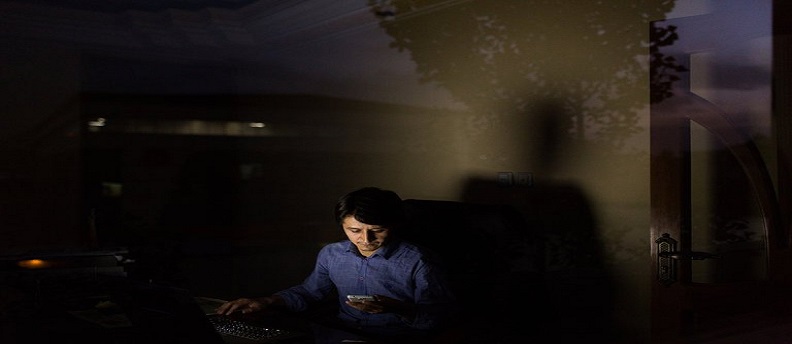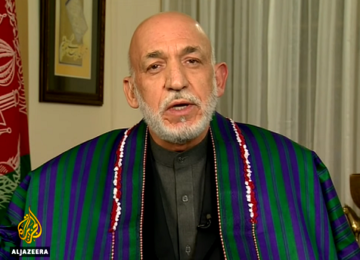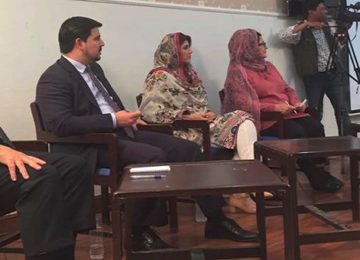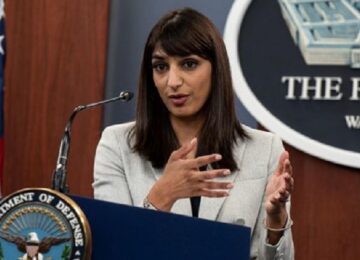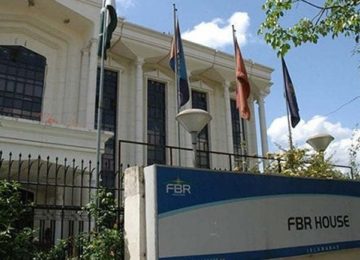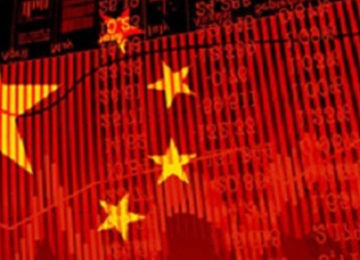The first time Zaki Daryabi started a small newspaper in Afghanistan, it shut down within months. Mr. Daryabi, who had just graduated from university in Kabul, lost most of the money lent to him by friends to start his business.
But soon after, he restarted the newspaper, Etilaat e Roz. And now, five years later, it has found itself in the middle of some of Afghanistan’s most important national conversations.
The publication remains on financial life support. Mr. Daryabi often finds himself writing desperate grant proposals, asking creditors for a little more patience or amplifying the paper’s online presence on days when he can’t afford the $250 required to publish in print.
At the same time, though, Mr. Daryabi’s journalists churn out investigative reports that stir what has become an increasingly chaotic Afghan democracy, with its warlords and ethnic factions often needing reminders of the rules of the new game and the role of the news media in it.
The growth of the free Afghan news media is one of the biggest achievements since the toppling of the Taliban by an international coalition in 2001.
Under the Taliban, there was only the regime’s state radio and newspaper. Today, there are more than 300 radio and 200 television channels, more than 70 newspapers, and hundreds of magazines across Afghanistan.
The numbers, however, often overshadow the draining work and risks these news organizations take.
Newspapers in particular, most of which have been subsidized by donor funding over the past 15 years, face not just financial worries, but also the nagging question of whether they can really bring about change in a country where power often lies less in the constitutional order and more at the hands of strongmen and their patronage.
Coping with the political pressures, and the financial challenges, is a daily struggle.
For publishers like Mr. Daryabi, newspaper work means living a life of debt, and often making life awkward for loved ones. As his paper has published reports critical of President Ashraf Ghani’s government, Mr. Daryabi’s relationship with his father, a Ghani supporter, has become strained. His father does not understand why his son keeps embarrassing him in front of his friends.
“When I am sometimes thinking about leaving it all, it’s not about myself — it’s about my twins, and their future,” said Mr. Daryabi, the father of twin boys.
Etilaat e Roz operates out of a third-floor apartment in western Kabul, where a team of 10 starts late in the morning and works late into the night. The operation is so small that for major investigations Mr. Daryabi and his chief editor become reporters.
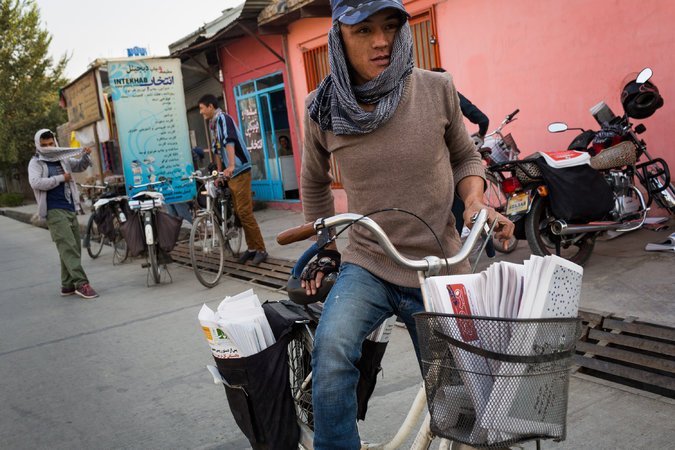
The paper has several distributors, on bicycle, who deliver the 3,000 copies at dawn five days a week. It relies heavily on its colorful online presence, with 300,000 subscribers to its Facebook page.
Advertisements cover only about 30 percent of the paper’s costs. Mr. Daryabi recently obtained a grant from Open Society Foundation for about $50,000, which will cover another 30 percent for the coming year.
There have been weeks when the paper hasn’t printed, simply putting the content online. During one of those stretches last year, Mr. Daryabi admits, he came closest to the lure of political money — accepting a onetime payment of $3,000 from former President Hamid Karzai’s foundation, arranged by one of his editors, who had once worked in the president’s office and told him that the paper was shutting down.
Mr. Daryabi’s team, after much internal debate, accepted the money and put it toward the rent.
The paper has conducted detailed investigations of the family networks that have controlled much of the Afghan state resources, including Mr. Karzai’s family; it devoted an entire issue to how some of these networks joined up in a scheme that took out about $900 million in reckless loans that collapsed the country’s biggest bank.
It has also investigated the sale by Mr. Ghani’s administration of a large section of prime real estate in Kabul at a dirt-cheap price to an election supporter.
Last week, the paper published a series of articles about ethnic favoritism in the presidential palace, a sensitive issue in a country that has long struggled with equality.
For months, Mr. Daryabi’s team and others had reported that Pashtuns made up the circle of people closest to Mr. Ghani’s office, marginalizing other ethnic groups in the most important conversations.
His paper found a document that was a smoking gun of sorts.
A senior employee of Mr. Ghani’s administrative office had shared a memo on an internal Telegram channel, highlighting how members of other ethnicities should be sidelined in favor of Pashtuns. Within minutes, the employee had written in the group again: “wrong channel.”
It was too late. The memo was leaked to the news media, and Mr. Daryabi’s team picked on it, carefully documenting every step of their reporting, and knowing that the authenticity of a document on an explosive issue like ethnic prejudice would be questioned.
The articles set off a week of intense debates across Afghan television channels and newspapers, and particularly on social media, where many lashed out at Mr. Daryabi and his paper.
Daud Noorzai, the new head of Mr. Ghani’s administrative office, insisted that the memo was the work of one individual and did not reflect the deeper thinking of the office he was leading. But that did not ease concerns about rot in the system.
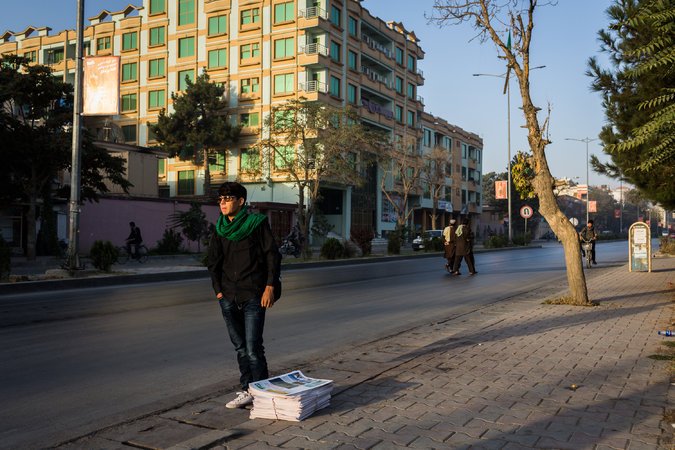
Mr. Ghani, who was in New York for the United Nations General Assembly at the time, ordered his attorney general to conduct an inquiry.
To Mr. Daryabi and his team, Mr. Noorzai’s acknowledgment of the problem and Mr. Ghani’s promise of accountability were a much needed victory during another difficult stretch when they had been contemplating shutting their enterprise down.
“In an environment where being branded and stamped as partisan is so common, we want our newspaper to stand for one thing: a newspaper,” said Khalil Pajhwok, the chief editor. “We are after earning trust as a professional media that doesn’t take sides, and that means we have to do trustworthy work, without censorship, that is factual.”
Mr. Daryabi was raised in a village in Jaghori, an enigma district of sorts that has a robust culture of books and ideas in an otherwise restive Ghazni Province. He is 31, based on the date his father scribbled on the back of the family’s copy of the Quran.
Or he is 28, based on how old the district governor thought he looked when he signed Mr. Daryabi’s ID card and officially registered his age when he began his university studies in Kabul.
As a student of political science, Mr. Daryabi started writing articles for a local newspaper, getting paid about $5 a piece. After graduation, he cobbled together about $16,000 from friends and family to start Etilaat e Roz, which in its first incarnation largely focused on entertainment.
After it closed, Mr. Daryabi, who does not speak much English, was called by a printing house to lead an English paper started primarily to make money from advertisements. Mr. Daryabi took the job on the condition that he could use the company’s resources to restart Etilaat e Roz. They had a deal.
After a year of running two newspapers, he could afford to work full-time on Etilaat e Roz, which now focused on politics.
Mr. Daryabi said that in those days, in 2012, there was more optimism about the country’s future and the media’s role in it.
But the difficult years since — with a messy election that threatened to break the country apart, a violent Taliban onslaught and his paper’s financial issues — have not beaten him down completely, he said.
“The raw material for a democracy is still there,” he said.
This article was published on www.nytimes.com on October 2, 2017. Original link.



